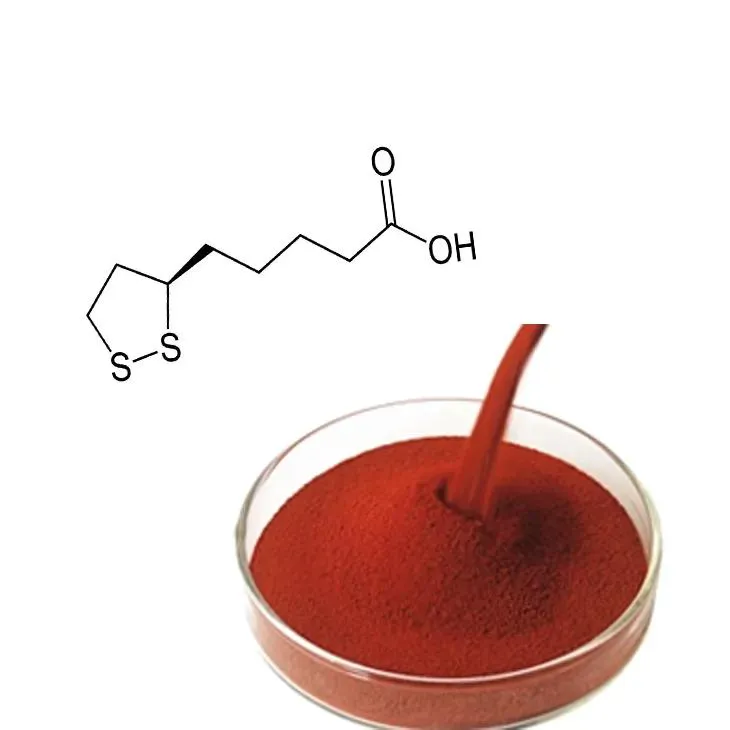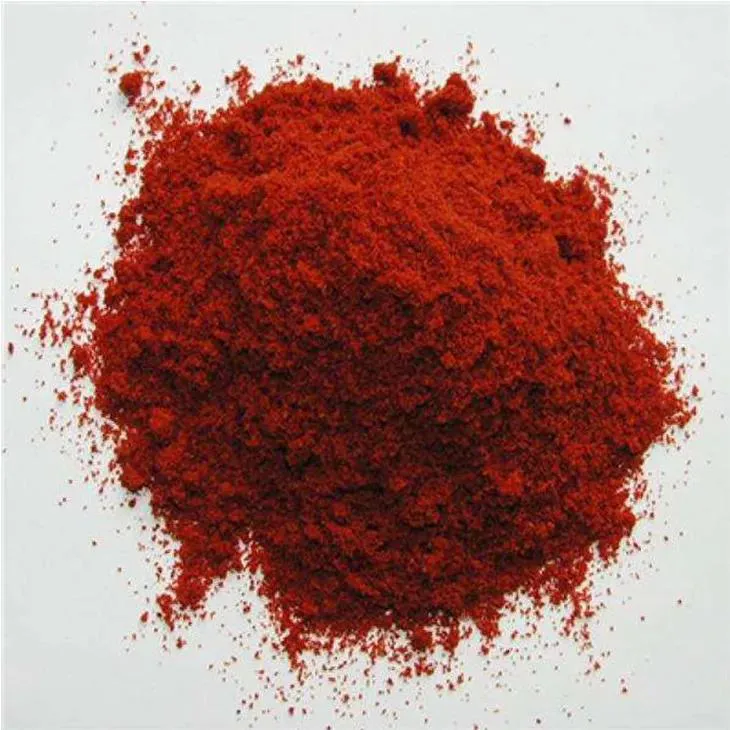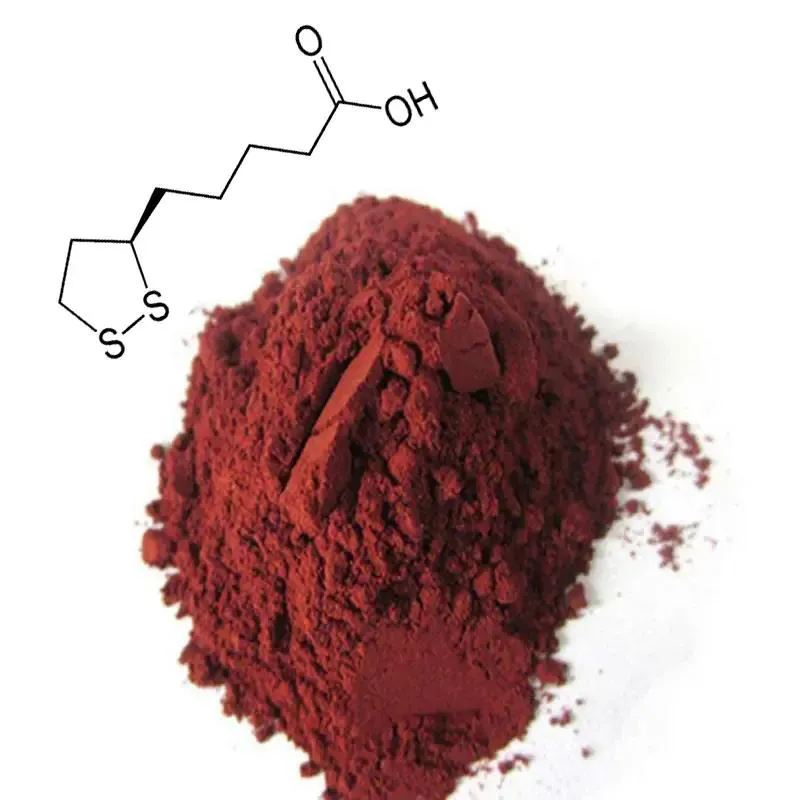- 0086-571-85302990
- sales@greenskybio.com
Astaxanthin for Facial Skin Health: Benefits, Applications, and Scientific Insights
2025-07-21

Green Sky Bio provides the highest quality extracts and supplements. Naturally derived, you can trust it! Feel free to contact us via email for more information about our products.
Astaxanthin, a carotenoid pigment celebrated for its vibrant red-orange color, is attracting increased attention for its potent antioxidant properties and potential health benefits, particularly in the realm of ophthalmology. Widely found in marine life such as shrimp, krill, and salmon, Astaxanthin serves as a guardian against oxidative stress, offering unique advantages for eye health. As our understanding of Astaxanthin deepens, it becomes essential to explore the roles this powerful antioxidant can play in maintaining optimal vision and protecting against various eye-related conditions. This article delves into the potential benefits of astaxanthin for eye health and examines the scientific evidence supporting its use.
Understanding Astaxanthin
Astaxanthin is a naturally occurring carotenoid, a class of pigments responsible for red, orange, and yellow hues in plants and animals. Unlike some other carotenoids, such as beta-carotene, astaxanthin is not converted to vitamin A in the body, but it offers distinct biological activities that are beneficial for health. Its unique molecular structure allows it to span cell membranes, acting as a robust antioxidant that can neutralize free radicals and reduce oxidative damage.
The antioxidant potency of astaxanthin surpasses that of many other carotenoids and vitamins, including beta-carotene and vitamin E, positioning it as a promising candidate for protecting delicate eye tissues from oxidative stress—one of the leading contributors to ocular aging and disease.

Astaxanthin's Impact on Eye Health
Reduction of Oxidative Stress: The eyes are particularly vulnerable to oxidative damage due to their exposure to light and high metabolic activity. Astaxanthin’s powerful antioxidant capabilities help protect ocular tissues from oxidative stress, thereby supporting overall eye health.
Macular Health: The macula, an area of the retina responsible for central vision, can benefit from astaxanthin’s ability to combat oxidative damage. This protection is crucial in supporting long-term macular health and may help reduce the risk of age-related macular degeneration (AMD), a leading cause of vision loss in older adults.
Improvement in Retinal Blood Flow: Emerging research suggests that astaxanthin can improve blood flow to the retina, enhancing nutrient delivery and waste removal from ocular tissues. This effect can be particularly beneficial in maintaining the health of the retina and supporting visual functions.
Anti-inflammatory Effects: Astaxanthin demonstrates potent anti-inflammatory properties, which can be instrumental in reducing inflammation in the eyes. This is beneficial in conditions like uveitis, an inflammatory disorder affecting the middle layer of the eye, and in managing symptoms associated with dry eye syndrome.
Visual Acuity and Eye Fatigue: Studies have shown that astaxanthin supplementation can improve visual acuity and reduce eye fatigue, particularly in individuals who spend prolonged periods engaging in visual tasks, such as working on computers.

Scientific Evidence Supporting Astaxanthin’s Benefits
While more extensive clinical research is needed to confirm these potential benefits fully, existing studies provide encouraging evidence for the role of astaxanthin in eye health:
Clinical Trials: Several clinical trials have investigated the effects of astaxanthin supplementation on eye health. Some studies have reported improvements in visual function, reduced symptoms of eye strain, and enhanced retinal blood flow following astaxanthin supplementation.
Animal Studies: Research involving animal models has demonstrated that astaxanthin can protect retinal cells from oxidative damage and support retinal integrity, further supporting its potential role in safeguarding eye health.
Mechanistic Studies: Mechanistic research highlights astaxanthin’s ability to modulate oxidative stress and inflammation pathways, both of which are critical factors in maintaining ocular health and preventing degenerative eye conditions.

Incorporating Astaxanthin into a Health Regimen
For those interested in leveraging astaxanthin for eye health, consider the following approaches:
Dietary Sources: Incorporate foods rich in astaxanthin, such as wild-caught salmon, krill, rainbow trout, and shrimp, into your diet to naturally boost your intake of this potent antioxidant.
Supplements: Astaxanthin supplements are widely available and can provide a convenient and concentrated source of the antioxidant. Look for high-quality supplements from reputable manufacturers, and adhere to the recommended dosage guidelines.
Complementary Nutrients: Pair astaxanthin with other nutrients that support eye health, such as lutein and zeaxanthin, which are known to enhance retinal health and visual performance.
Safety and Precautions
Astaxanthin is generally considered safe for consumption, with a well-established safety profile. However, following these considerations is advisable:
Side Effects: While side effects from astaxanthin are rare, some individuals may experience mild gastrointestinal discomfort or allergic reactions. If any adverse effects occur, discontinue use and consult a healthcare professional.
Drug Interactions: Astaxanthin may interact with certain medications, including those that affect blood pressure or the immune system. Those on medications should consult with a healthcare provider before starting astaxanthin supplementation.
Pregnancy and Breastfeeding: The safety of astaxanthin use during pregnancy and breastfeeding has not been thoroughly studied. Pregnant or nursing women should seek guidance from a healthcare provider before supplementing.
Conclusion
Astaxanthin is a promising natural antioxidant with the potential to protect and enhance eye health. By reducing oxidative stress, improving retinal blood flow, and offering anti-inflammatory benefits, astaxanthin supports various aspects of ocular health and may help safeguard vision over the long term. While further research is needed to establish its full range of benefits for the eyes, current evidence underscores its value as part of an eye-friendly lifestyle. By incorporating astaxanthin responsibly through dietary sources or supplements, alongside other eye-supporting nutrients, individuals can take proactive steps in maintaining their visual health and quality of life.
- ▶ Hesperidin
- ▶ Citrus Bioflavonoids
- ▶ Plant Extract
- ▶ lycopene
- ▶ Diosmin
- ▶ Grape seed extract
- ▶ Sea buckthorn Juice Powder
- ▶ Fruit Juice Powder
- ▶ Hops Extract
- ▶ Artichoke Extract
- ▶ Mushroom extract
- ▶ Astaxanthin
- ▶ Green Tea Extract
- ▶ Curcumin
- ▶ Horse Chestnut Extract
- ▶ Other Product
- ▶ Boswellia Serrata Extract
- ▶ Resveratrol
- ▶ Marigold Extract
- ▶ Grape Leaf Extract
- ▶ New Product
- ▶ Aminolevulinic acid
- ▶ Cranberry Extract
- ▶ Red Yeast Rice
- ▶ Red Wine Extract
-
Peppermint Extract Powder
2025-07-21
-
Citrus Aurantium Extract
2025-07-21
-
Beetroot juice Powder
2025-07-21
-
Eyebright Extract
2025-07-21
-
Cocoa Extract
2025-07-21
-
Acerola Extract
2025-07-21
-
Rosemary extract
2025-07-21
-
Golden Seal Extract
2025-07-21
-
Curcuma Longa Extract/Turmeric extract
2025-07-21
-
Andrographis Paniculata Extract Powder
2025-07-21





















